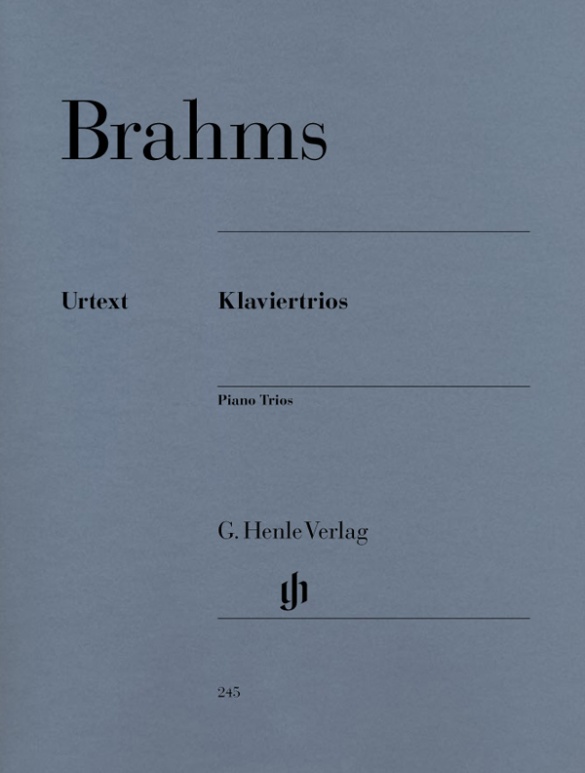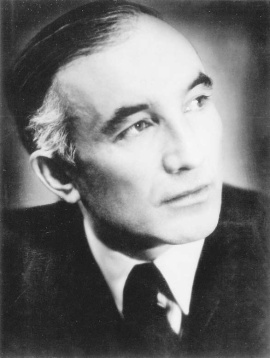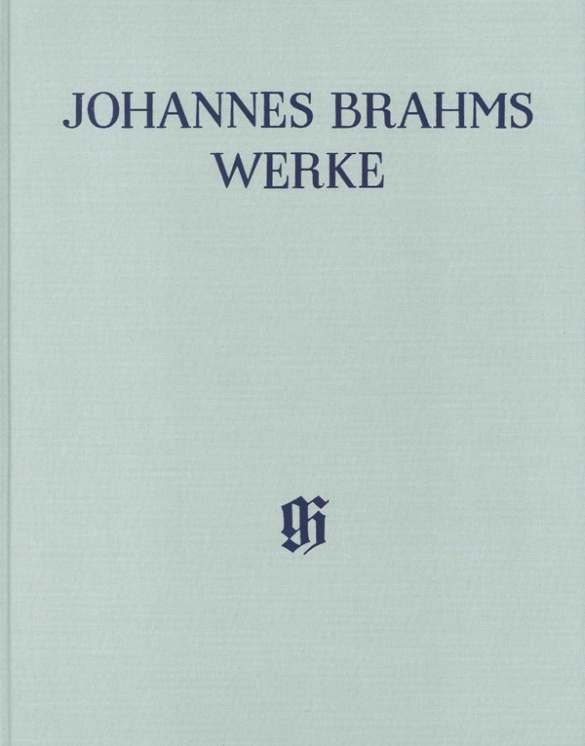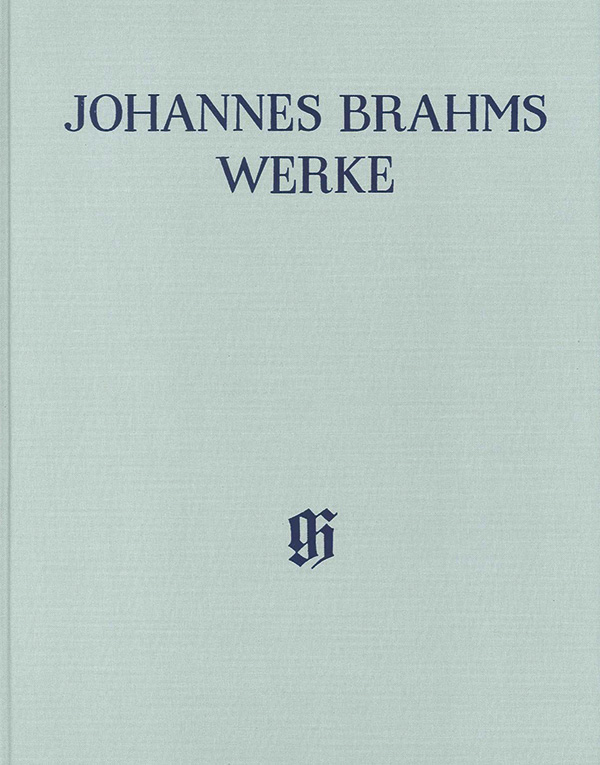

Johannes Brahms
Trios avec piano
Les trios avec piano comptent parmi les grands genres de la musique de chambre classique et Brahms s’y consacra très tôt. Il composa son opus 8 au cours de l’automne et de l’hiver 1853/54, c’est-à-dire à l’âge de 20 ans. Par contre, ses deux autres trios avec piano op. 87 en Ut majeur et op. 101 en ut mineur ne virent le jour que 28 et 32 ans plus tard. On sait que parallèlement au trio en Ut majeur, Brahms travaillait aussi à un autre trio en Mi bémol majeur qu’il détruisit probablement. En 1889, il décida de reprendre son premier trio avec piano et le remania à tel point qu’il écrivit à Clara Schumann: «J’ai réécrit mon trio en Si majeur». L’édition Henle-Urtext reprend le trio op. 8 dans la seconde version parue en 1891, mais pro-pose également la première version en annexe.
CONTENU/DÉTAILS
CONCERNANT LE COMPOSITEUR

Johannes Brahms
Son œuvre considérable comprend de la musique de chambre, des œuvres pour piano, de nombreuses compositions pour chœur et des lieder (parmi lesquels des compositions sur des textes de chants populaires) ainsi que les grandes pages orchestrales des années 1870 et 80. Ses compositions sont marquées par le procédé de la variation à développement. Il passe à la fois pour avoir été aux antipodes de la Nouvelle École allemande animée par Liszt et le représentant de la «musique absolue».
| 1833 | Né le 7 mai à Hambourg en tant que fils d’un musicien. À l’âge de 7 ans il prend ses premières leçons de piano chez Willibald Cossel, puis chez Eduard Marxen. Premières auditions publiques à partir de 1843. |
| 1853 | Lors d’une tournée de concerts dans les villes allemandes, il fait la connaissance de Schumann qui, dans son article «Neue Bahnen» (Nouvelles voies) l’annonce comme le grand compositeur à venir. Il noue avec Clara Schumann une profonde amitié qui tiendra toute sa vie. |
| 1854–57 | 1er Concerto pour piano en Ré mineur op. 15. |
| 1857–59 | Chef de chœur, pianiste et enseignant à la cour princière de Detmold. |
| 1859–61 | Direction du chœur de femmes de Hambourg. |
| 1860 | Manifeste contre les «Nouveaux Allemands» autour de Liszt. |
| 1863 | Cantate «Rinaldo» op. 50. |
| 1863 | Directeur de l’Académie de chant de Vienne. |
| 1868 | Exécution partielle du «Requiem allemand» op. 45 à Vienne (création de l’œuvre intégrale en 1869 à Leipzig). |
| 1871–74 | Directeur artistique de la Société des Amis de la Musique à Vienne. |
| 1873 | Variations sur un thème de Haydn op. 56a pour orchestre. |
| à partir de 1877 | Son œuvre symphonique débute par la 1re Symphonie en Ut mineur op. 68 (commencée en 1862), composition de la 2e Symphonie en Ré majeur op. 73 (1877), 3e Symphonie en Fa majeur op. 90 (1883), 4e Symphonie en Mi mineur op. 98 (1884-1885): thèmes expressifs, style de type musique de chambre. |
| à partir de 1878 | Voyages en Italie. |
| 1878 | Concerto pour violon en Ré majeur op. 77 pour Joseph Joachim. |
| 1881 | 2e Concerto pour piano en Si bémol majeur op. 83 avec Scherzo. |
| 1886 | Président d’honneur du Tonkünstlerverein de Vienne. |
| 1897 | Vier ernste Gesänge (Quatre chants sérieux) op. 121. Meurt le 3 avril à Vienne. |
About the Authors

Ernst Herttrich (Editeur)
Dr. Ernst Herttrich, born in 1942 in Würzburg, read musicology, history, German and theology at the universities in Würzburg and Cologne. In 1970 he earned his doctorate in Würzburg with a study of the expression of melancholy in the music of Mozart.
From 1970 to 1990 he was an editor at G. Henle Publishers in Munich, after which he was Head of the Beethoven Complete Edition for over 15 years. In 1999 he took over as Head of the Beethoven-Haus Publishers, and from 2001 was made Head of the Beethoven-Archiv, the research centre at the Beethoven-Haus.
He has been a visiting professor at Meiji Gakuin University in Tokyo and has undertaken several lecture tours both there and to Kyoto. His research interests include source studies, editorial techniques and music history. Herttrich’s publications include “Beethoven. Liederkreis an die ferne Geliebte” (Bonn 1999) and “Ludwig van Beethoven. Biographie in Bildern” (Bonn, 2000). Herttrich has edited over 100 Urtext editions for G. Henle Publishers.

Hans-Martin Theopold (Doigtés piano)
Prof. Hans-Martin Theopold, was born to a pastor’s family in Detmold on 22 April 1904, the youngest of five children. Even as a child he often played the organ in the “Marktkirche” and soon began to take piano lessons with Theodor Vehmeier. At the age of 17 he made his debut at the Landestheater in Detmold with Ludwig van Beethoven’s Piano Concerto in C major under Friedrich Quast (Herford). Following the successful completion of his schooling at the Gymnasium Leopoldinum in Detmold, he went on to study music and piano (main subject): from 1922–23 at the “Württembergische Hochschule für Musik” in Stuttgart (with Max Pauer, 1866–1945) and then from 1923–1928 at the “Staatliche Akademische Hochschule für Musik” in Berlin-Charlottenburg (with Richard Rössler, 1880–1962, and Waldemar Lütschg, 1877–1948). After completing his piano studies (graduating with “very good”) in 1928, he began an active solo career both at home and abroad (USA, Switzerland, Scandinavia, the Baltic states, the Balkans). As a member of the Chamber Music Association of the State Opera in Berlin (from 1933) he also gave countless chamber music concerts, including ones with his violin partner Gustav Havemann (1882–1960).
In the 1930s, audiences and the press alike raved about Theopold’s extraordinary gifts as a pianist: “This young player has it in him to soon become one of the best players in Germany. A superior technique, a wonderful singing piano tone, the strength of a Titan, but not at all hard due to the incomparably gentle elasticity of his touch” [Münchener Zeitung, 21 November 1933]. – “H.M. Theopold gave convincing proof of his splendid pianistic ability in an extremely gripping sonata with a modern idiom by Alban Berg, but predominantly in Schubert’s […] Wanderer Fantasy, which he played with a polished technique and creative power” [Weser-Zeitung, 21 December 1932]. Theopold was awarded several prizes, including the “Grotrian-Steinweg-Preis” in 1928.
In 1937 Theopold became a teacher for the piano (main subject) at the “Bayerisches Staatskonservatorium der Musik” in Würzburg. In 1939 he married Irene Tatjana Wülfing, who was from Moscow. From 1943 he became head of the piano master-class at the “Nordische Musikschule” in Bremen, although this was interrupted by the events of the war. Following his return from a prisoner of war camp, Theopold gave concerts and taught although he did not hold a permanent position. From 1955–1956 he was acting head of the piano master-class at the “Bergisches Landeskonservatorium” in Wuppertal, finally being appointed Professor for Piano on 1 April 1956 at the “Staatliches Institut für Schul- und Volksmusik” in Detmold, later at the “Nordwestdeutsche Musikakademie Detmold” (today “Hochschule für Musik Detmold”), where he taught for decades. On 30 September 1969 he retired. “His students extol his pedagogical gifts. […] Humour, charm, helpfulness and kind-heartedness moderate the strictness of his professional ethos as a musician and teacher” (Lippische Rundschau, 23 April 1969; see also: Lippische Landeszeitung 22 April 1969 on the occasion of Theopold’s 65. birthday: “Prof. Theopold, a modest but at the same time energetic man, is an enthusiastic teacher”). Theopold died in Detmold in 2000.
Contact with Günter Henle was established directly after the publishing house was founded, when Theopold thanked the publishers with great enthusiasm for its first Urtext editions. His extensive correspondence with the publishing house was bequeathed to the Lippische Landesbibliothek in 2014 to ensure its long-term accessibility to the public. The letters testify not only to Theopold’s great interest in musical sources and text questions but also to his initial strict refusal (!) of fingerings in text-critical editions such as these: “For fingerings are and remain something individual no matter what their quality” (letter to Günter Henle from 26 May 1949 {publishing house archives}). Günter Henle was not, however, to be swayed and stressed the necessity of fingerings in his Urtext editions: “It is better to publish the Urtext […] with fingerings that are not necessary for a few individuals, or that might even, I admit, be considered irritating here and there” (letter to Hans-Martin Theopold of 17 September 1953).
It was only in 1955 that Theopold accepted Günter Henle’s offer of contributing fingerings for an Urtext edition that was in the process of being prepared by way of trial. (HN 74, Schubert, Complete Dances for Piano, Volume 1). Following this, Theopold was commissioned to write the fingerings for nearly all of the publishing house’s new editions in quick succession. Günter Henle, himself a good pianist, greatly valued Theopold’s fingerings, and also the many suggestions regarding the musical text in question. In addition, Theopold was always very reliable, thorough and conscientious – something that is not unimportant with editorial work!
Thus to date Hans-Martin Theopold has provided the fingerings for the greatest number of Henle Urtext editions by far – 226 editions (!) in total.
We would like to thank Mrs Margot Theopold and the Hochschule für Musik in Detmold for their great support in providing biographical material.
G. Henle Verlag
Informations sur la sécurité du produit

G. Henle Verlag
Vous trouverez ici des informations sur le fabricant du produit.G. Henle Verlag e.K.
Forstenrieder Allee 122
81476 München
Allemagne
info@henle.de
www.henle.com
Als u houdt van kamermuziek, dan biedt Henle u met de studiepartuur van de pianotrio’s van Brahms bijzonder mooie literatuur ... Als een extra in deze editie is een vroege versie van het trio opus 8 opgenomen. Vergelijking van beide versies biedt een goed inzicht in Brahms’ werkwijze en in zijn eigen waardering voor de oerversie van deze compositie.
Piano Wereld, 2003recommandations
autogenerated_cross_selling



